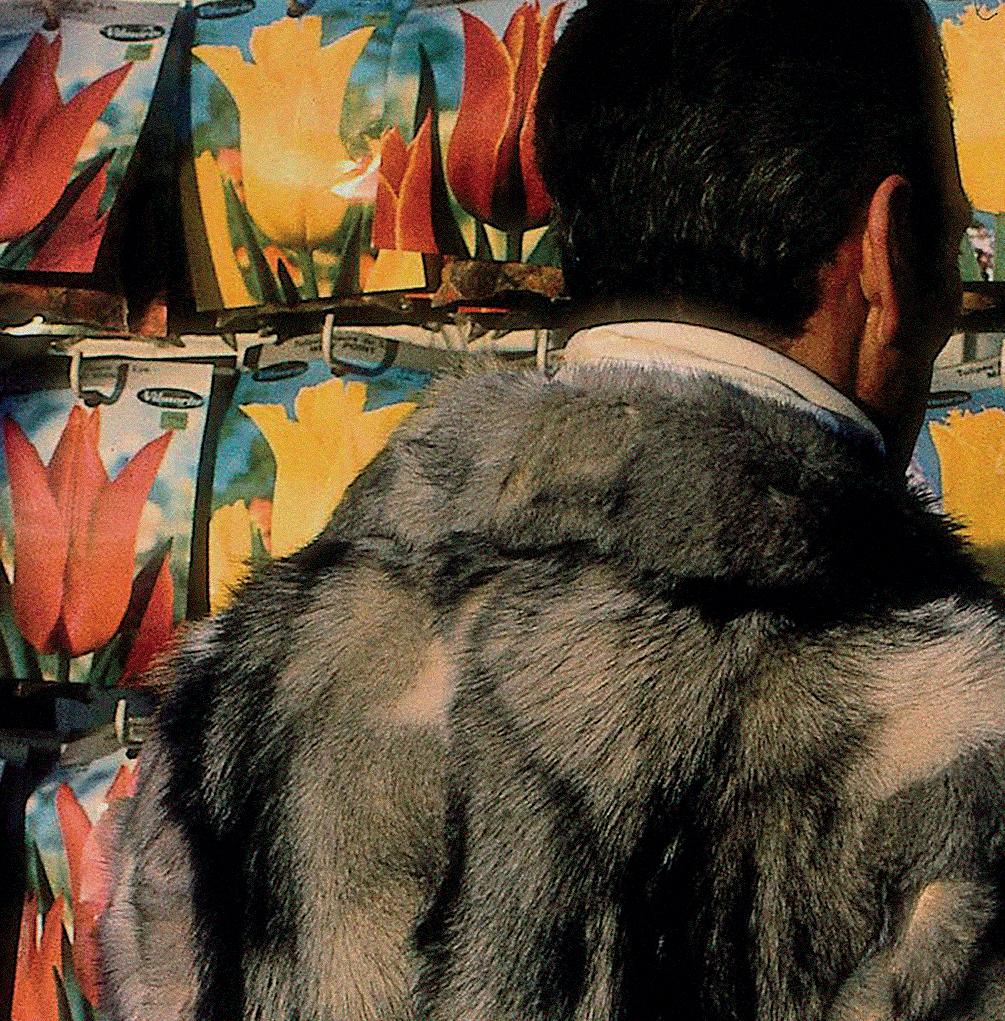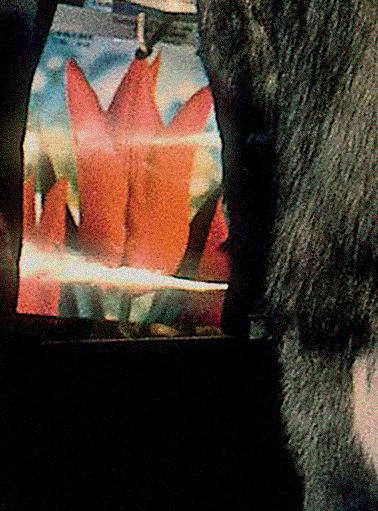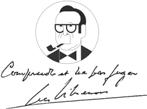Maigret’s Dead Man
1.
‘Let me stop you there, madame . . .’
After minutes of patient effort, Maigret finally managed to interrupt his visitor’s flow.
‘You are now telling me that your daughter is slowly poisoning you . . .’
‘It’s true . . .’
‘But a moment ago, you said, no less categorically, that it was your son-in-law who deliberately lay in wait in the corridor for the chambermaid to pass so that he could slip poison into either your coffee or one of your many varieties of herbal tea . . .’
‘Quite true . . .’
‘Even so . . .’ – he consulted, or pretended to consult, the notes he had taken of this interview, which had been going on for more than an hour – ‘when you began, you told me that your daughter and her husband hate each other . . .’
‘That is also true, inspector.’
‘But they are agreed that they want to do away with you?’
‘No, not at all! Don’t you see, they are both trying to poison me separately?’
‘What about your niece, Rita?’
‘Also separately . . .’
It was February. The weather was mild and sunny with
the occasional cloud plump with showers which brought sudden rains down out of the sky. But three times since his visitor had been in his office, Maigret had poked his stove, the last remaining stove in the Police Judiciaire building, which he had had to fight so hard to keep when central heating had been installed throughout Quai des Orfèvres.
The woman was probably roasting in her mink coat, under the silk of her black dress, under the accumulation of jewels which decorated her all over – ears, throat, wrists and bosom – making her look like a gypsy. And it was also of a gypsy that she made you think, not of a grand lady, with her violent make-up which had formed into a crust and was now beginning to run.
‘So that makes three people in all who are intending to poison you.’
‘Not intending . . . They’ve already started . . .’
‘And you claim that they’re all acting independently of each other . . .’
‘I’m not claiming anything, I am sure of it.’
She spoke with the same Romanian accent as a famous Boulevard actress and with the same sudden passionate outbursts which set her quivering.
‘I am not mad . . . Read this . . . I assume you’ve heard of Professor Touchard? . . . He’s the one they always call as an expert witness in all the important trials . . .’
She had thought of everything. She had even consulted the most famous psychiatrist in Paris and requested him to supply a document certifying that she was in her right mind!
There was nothing he could do but listen to her patiently and, to keep her happy, jot down a few notes from time to time on his pad. She had arranged her visit through a government minister who had personally phoned the commissioner of the Police Judiciaire. Her husband, who had died a few weeks earlier, had been a councillor of state. She lived in Rue de Presbourg in one of those enormous stone-built mansions which front Place de l’Étoile.
‘As for my son-in-law, this is how he carries on . . . I’ve looked carefully into it . . . I’ve been watching him for months . . .’
‘So he began when your husband was still alive?’
She handed him a plan, which she had drawn with great care, of the first floor of the house.
‘My bedroom is marked A . . . B is the bedroom of my daughter and her husband . . . But for some time Gaston has not been sleeping in that room . . .’
The phone – at last! – which offered Maigret a moment’s respite.
‘Hello? . . . Who is on the line? . . .’
Normally the officer on the police switchboard did not put through any but the most urgent calls.
‘I’m sorry, sir . . . It’s a man. He won’t give his name but is very insistent. Says he must absolutely talk to you . . . He swears it’s a matter of life and death . . .’
‘And he wants to speak to me personally?’
‘Yes . . . Shall I put him through?’
Maigret heard a voice saying anxiously:
‘Hello? . . . Is that you? . . .’
‘Detective Chief Inspector Maigret, yes . . .’
‘I’m sorry about this . . . My name wouldn’t mean anything to you . . . You don’t know me, but you used to know my wife, Nine . . . Hello? . . . I’ve got to tell you it all very quickly because any time now something might happen that . . .’
Maigret’s first reaction was to think: ‘Oh God, not another lunatic! It must be the day for them . . .’
He had observed that lunatics came in waves, as if they were affected by the phases of the moon. He made a mental note that later he would consult a calendar.
‘My first thought was to come and see you . . . I walked past Quai des Orfèvres but didn’t dare go in because he was right behind me . . . I think he would have had no hesitation in shooting me . . .’
‘Who are you talking about?’
‘Hang on. I’m quite close. Just across from your office. A minute ago I could see your window. Quai des GrandsAugustins. There’s a small bar, you’ll know it, it’s called Aux Caves du Beaujolais. I’m calling from the phone booth there . . . Hello? . . . Can you hear me? . . .’
It was 11.30 in the morning, and Maigret automatically jotted the time down in his notepad, then the name of the bar . . .
‘I’ve thought of every conceivable solution . . . I approached a policeman on Place du Châtelet . . .’
‘When?’
‘Half an hour ago. One of the men was very close. It was the small, dark one. There are several of them, they work in relays. I’m not sure if I could recognize them all. But I know the small dark man is one of them . . .’
Then silence.
‘Hello?’ said Maigret.
The silence continued for several moments, then the voice came again:
‘Sorry. I heard someone coming into the bar and thought it was him. I opened the door an inch but it was only a delivery man . . . Hello? . . .’
‘What did you say to the policeman?’
‘That some men had been following me since last night . . . No, actually since yesterday afternoon . . . And that they must be waiting for an opportunity to kill me . . . I asked him to arrest the one who was standing behind me . . .’
‘And he refused?’
‘He asked me to point the man out, and when I turned round to do so I couldn’t see him. So he didn’t believe me. I made the most of the opportunity and ran down into the Métro. I jumped on the first train and then jumped off it again just before the doors closed, as it was about to leave. I walked along all the passages. I came out opposite the department store, Bazar de l’Hôtel-de-Ville and walked through all the shops too . . .’
He must have been walking very briskly, even running, because his breathing was still rapid and wheezy.
‘What I’m asking is for you to send a plainclothes officer to me right away. Here, in the Caves du Beaujolais. He mustn’t speak to me. He must act all casual. I’ll leave. I’m pretty sure the man tailing me will follow. He can then be arrested, and I’ll come to see you and explain everything . . .’
‘Hello?’
‘I said I . . .’
Then nothing. Confused sounds.
‘Hello? . . . Hello? . . .’
But there was no one at the other end of the line.
When she saw Maigret hang up, the old woman who was being poisoned resumed imperturbably: ‘As I was saying . . .’
‘Excuse me for a moment, would you?’
He went to the door which communicated with the office occupied by the inspectors.
‘Janvier, put your hat on and run over to Quai des Grands-Augustins. There’s a small bar there, Aux Caves du Beaujolais it’s called. Ask if the man who just used the phone is still there.’
He lifted the receiver of his phone.
‘Get me the Caves du Beaujolais . . .’
As he did so, he looked out of the window. On the opposite bank of the Seine, where Quai des GrandsAugustins rises to the level of Pont Saint-Michel, he had a clear view of the narrow front of a bar which catered mostly for regulars. He had occasionally stopped there to drink a beer at the counter. He remembered that there was a step down to go in, that it was cool inside and that the landlord always wore a cellar man’s black apron.
A lorry parked outside the bar blocked his view of the door. Pedestrians passed by on the pavement.
‘You see, inspector . . .’
‘One moment, madame, please . . .’
Still looking out, he very carefully filled his pipe.
This old woman, with her tales of poison, would waste his entire morning for him, if not more. She had brought with her reams of paper, plans, certificates, even analyses of various kinds of foodstuffs which she must have ordered from her own pharmacist.
‘I’ve always been a mistrustful sort of person, you know . . .’
She gave off a powerful, nauseating perfume which had invaded the office and had managed to get the better of the wholesome smell of pipe smoke.
‘Hello? . . . Haven’t you got that number I asked you for yet?’
‘I’m calling it, sir. I haven’t stopped calling it. The number is constantly engaged. Unless someone forgot to put the receiver back on the hook . . .’
Moments later, Janvier, not wearing a jacket, crossed the bridge in an ungainly lope and went into the bar. The lorry decided to drive off, but Maigret still could not see inside the bar as it was too dark. A few more moments elapsed, then the phone rang . . .
‘There, sir. I’ve got that number for you. It’s ringing now.’
‘Hello? . . . Who is this? Is that you, Janvier? . . . The phone was off the hook? . . . Well?’
‘Yes, there was a shortish man here phoning . . .’
‘Did you see him?’
‘No. He’d gone by the time I got here. Apparently he
kept looking out through the window of the booth and opening the door . . .’
‘Anything else?’
‘A customer walked in, and the first thing he did was look towards the phone booth. Then he ordered a brandy at the counter. As soon as the man in the booth saw him, he broke off his conversation.’
‘Did both of them leave?’
‘Yes, one behind the other.’
‘Try to get the landlord to give you as detailed a description as possible of both men . . . Hello? And while you’re at it come back via Place du Châtelet. Question all the officers on duty. Try and find out if one of them, about three-quarters of an hour ago, was approached by the same shortish man who asked him to arrest someone who was following him.’
When he hung up, the old woman looked at him with satisfaction and evident approval, as though she were about to award him a very good mark:
‘Now that’s exactly how I understand policemen operate. You don’t waste any time. You think of everything.’
He sat down again with a sigh. He had been about to open the window because he was beginning to suffocate in his overheated office, but he did not want to miss any opportunity of cutting short the visit of this woman who had been recommended by the minister.
Aubain-Vasconcelos. That was her name. It would remain engraved on his memory, even if he never saw her again. Did she die in the days immediately following? Probably not. He would have heard about it. Perhaps she
had been locked away? Perhaps she had felt let down by the official police and had instead turned to a private detective agency? Or perhaps she had woken up next morning with some other fixation?
Be that as it may, he was stuck there for another hour listening to her talking about all the people in that vast mansion in Rue de Presbourg – where life could not have been much fun – who were feeding her poison at all hours of the day.
At noon he was at long last able to open his window. Then, pipe between his teeth, he walked into the commissioner’s office.
‘Did you get rid of her gently?’
‘As gently as could be.’
‘I gather that in her day she was one of the most beautiful women in Europe. I knew her husband slightly, the mildest, dullest, most boring man imaginable. Are you going out, Maigret?’
He hesitated. The streets were beginning to smell of spring. Tables and chairs had been brought out on to the terrace of the Brasserie Dauphine and the commissioner’s question was an invitation to stroll down for a pre-prandial drink.
‘I think I’d better stay here. I got a very odd phone call this morning.’
He was about to explain when the phone rang. The commissioner answered then passed him the receiver.
‘It’s for you.’
Maigret recognized the voice immediately. It sounded even more frightened than before.
‘Hello! We were interrupted earlier. He came in. He could have heard through the door of the phone booth. I was scared . . .’
‘Where are you now?’
‘In the Tabac des Vosges, on the corner of Place des Vosges and Rue des Francs-Bourgeois. I tried to give him the slip. I don’t know if I managed to. But I swear I’m not mistaken, that he really is out to kill me. It would take too long to explain. I thought the others wouldn’t take me seriously, but that you . . .’
‘Hello?’
‘He’s here . . . I . . . Sorry . . .’
The commissioner stared at Maigret, who was wearing his irritated look.
‘Something wrong?’
‘I don’t know. This is a very strange business. Do you mind if . . . ?’
He picked up another phone.
‘Get me the Tabac des Vosges at once . . . The owner, yes . . .’
Then, to the commissioner:
‘Provided this time he didn’t forget to hang up.’
The phone rang almost straight away.
‘Hello . . . Is that the Tabac des Vosges? Am I speaking to the owner? . . . Is the customer who just phoned still there? . . . What was that? . . . Yes, you go and check . . . Hello? . . . Just left? . . . Did he pay? . . . Tell me – did another customer come in while he was on the phone? . . . No? . . . On the terrace? . . . Go and look if he’s still there . . . He left too? . . . And without waiting for the
drink he’d ordered? . . . Thanks . . . No . . . Who am I? . . . Police . . . No, nothing for you to worry about . . .’
It was at this point that he decided not to go to the Brasserie Dauphine with the commissioner. When he opened the door of the inspectors’ office, he found Janvier, who was back and waiting for him.
‘Come into my office. Tell me everything.’
‘He’s an oddball, sir. Shortish and nondescript, wore a raincoat, a grey hat and black shoes. He rushed into the Caves du Beaujolais and made straight for the phone booth, telling the man behind the counter to serve him a drink. He said, “Anything’ll do”. Through the window of the booth, the bar owner saw him talking animatedly and waving his arms about. Then, when the other customer walked in, the first one shot out of the booth like an imp out of a bottle, without saying a word and headed off quickly towards Place Saint-Michel . . .’
‘What about the second man?’
‘He was short too . . . Anyway not very big, but strong, jet black hair.’
‘What about the uniformed officer in Place du Châtelet?’
‘It did happen. The man in the raincoat approached him, out of breath, looking wild-eyed. He waved his arms about and asked him to arrest someone who was following him but he couldn’t point him out in the crowd. The officer decided to make a note of it in his report, just in case.’
‘I want you to go to Place des Vosges. There’s a tobacconist’s on the corner of Rue des Francs-Bourgeois.’
‘Got it . . . ’
A shortish man, waves his arms about, wears a beige raincoat and a grey hat. That was the sum total of all that was known about him. There was nothing else to do now but stand by the window and watch the crowds stream out of offices and invade the bars, the pavement cafés and the restaurants. Paris was all light and life. As always happens, more pleasure was taken around the middle of February in the first gusts of spring than when spring finally arrived. And the newspapers would doubtless soon be talking of the famous chestnut tree on Boulevard Saint-Germain, which would be in flower a month from now.
Maigret phoned down to the Brasserie Dauphine.
‘Hello? . . . Joseph? . . . Maigret . . . Can you bring me up a couple of beers and some sandwiches? . . . That’s right, for one . . .’
Before the sandwiches arrived, the phone rang. He recognized the voice at once: he had told the switchboard to put these calls through immediately, without wasting a moment.
‘Hello? This time I think I’ve well and truly given him the slip . . .’
‘Who are you?’
‘Nine’s husband. But that’s not important. There are at least four of them, not counting the woman . . . Someone absolutely must come at once and . . .’
This time, he hadn’t had time to say where he was phoning from. Maigret called the woman at the exchange. It took a few minutes. The call had come from the Quatre Sergents de la Rochelle, a restaurant on Boulevard Beaumarchais, at no distance from the Bastille.
This location wasn’t very far from Place des Vosges either. It was possible to track the meanderings of the shortish man in a raincoat within, or almost, the same neighbourhood of Paris.
‘Hello? Is that you Janvier? . . . I thought you might still be there . . .’
Maigret was phoning him at the bar in Place des Vosges.
‘Go to the Quatre Sergents de la Rochelle . . . Yes . . . Keep the taxi . . .’
An hour went by without a single phone call, without anything more being learned about Nine’s husband. When the phone did ring, it wasn’t him at the other end of the line but a café waiter.
‘Hello? Am I speaking to Detective Chief Inspector Maigret? . . . Inspector Maigret in person? . . . I am the waiter at the Café de Birague in Rue de Birague. I’m speaking on behalf of a customer who asked me to call you.’
‘How long ago was this?’
‘Maybe a quarter of an hour. I was supposed to phone straight away but it’s our busy time.’
‘A shortish man, wearing a raincoat?’
‘Yes. Right. I was afraid it was some sort of practical joke. He was in a terrible hurry. He kept looking out into the street . . . Wait, I want to get this right . . . As I remember, in his own words, he said to tell you that he’d try to lead the man to the Canon de la Bastille. Do you know it? It’s the brasserie on the corner of Boulevard Henri IV. He wanted you to send somebody pronto . . . Wait, that’s not all. I expect you’ll understand. He said, and these are his
exact words: “It’s a different man. Now it’s the tall one with red hair, he’s the worst.”’
Maigret went there himself. He got into a taxi, which took less than ten minutes to reach Place de la Bastille. The brasserie was a great barn of a place and quiet. Its customers were mostly regulars who ordered the dish of the day or a plate of charcuterie. He looked round for a man in a raincoat, then toured the coat racks hoping to spot a beige raincoat.
‘Tell me, waiter . . .’
There were six waiters plus the woman at the till and the man who owned the place. He questioned them all. No one had seen his man. So he took a seat in a corner by the door, ordered a beer and waited, smoking his pipe. Half an hour later, sandwiches notwithstanding, he ordered a plate of sauerkraut and frankfurters. He watched people pass by on the pavement. Every time a raincoat appeared, he gave a start, and there were many of them, for the shower now falling was the third since that morning. The rain was translucent, transparent, the plain, innocent kind of rain which does not prevent the sun from shining.
‘Hello? . . . Police Judiciaire? . . . It’s Maigret. Has Janvier got back? Let me speak to him . . . Is that you, Janvier? . . . Jump in a taxi and meet me in the Canon de la Bastille . . . You’re right, today’s the day for bars. I’ll wait for you here . . . No, nothing new . . .’
Too bad if the man with the windmill arms was a hoaxer. Maigret left his inspector to keep an eye on the
Canon de la Bastille and used the taxi to go back to his office.
The chances that Nine’s husband had been murdered since half past twelve were slim, because he did not seem keen to venture down backstreets. On the contrary, he chose busy parts of town and main thoroughfares. Even so, Maigret contacted the emergency services, which kept constantly up to date about any trouble that happened in Paris.
‘If you are informed that a man in a raincoat has had an accident or been involved in an argument or whatever, give me a ring . . .’
He also gave instructions for one of the Police Judiciaire’s squad cars to be kept available for him in the courtyard of Quai des Orfèvres. This was perhaps excessive, but he was merely stacking the odds on his side.
He talked to people who came to his office, smoked many pipes and stoked his stove from time to time, while keeping his window open, and occasionally aimed a reproachful look at his phone, which remained resolutely silent.
‘You used to know my wife . . .’ the man had said.
He tried idly to remember a Nine. He must have met many of that name. He had known one, a few years before, who ran a small bar in Cannes, but she had been an old lady even then and was probably dead by now. There was also a niece of his wife’s whose name was Aline, but everybody called her Nine.
‘Hello? Detective Chief Inspector Maigret?’ It was four o’clock. It was still broad daylight but the
inspector had switched on his desk lamp with the green shade.
‘I am the postmaster at 28, Rue du Faubourg Saint-Denis. I’m sorry to bother you. It’s probably some sort of hoax. A few minutes ago a customer approached the counter that deals with registered parcels . . . Hello? . . . The counterclerk, Mademoiselle Denfer, told me that he seemed to be in a great hurry. He kept turning round. He pushed a piece of paper under her nose. He said: “Don’t try to understand. Phone this message through to Inspector Maigret at once.” Then he vanished into the crowd.
‘The member of staff concerned reported this to me. I have the piece of paper in front of me. It’s written in pencil, a terrible scrawl. Looks like the man wrote the note while he was walking along.
‘This is what it says: “I couldn’t make it to the Canon”. Does that mean anything to you? It’s meaningless to me. But no matter. Then there’s a word I can’t read. “Now there’s two of them. The small dark one has come back.” It’s the word “dark” I’m not sure of . . . Say again? . . . Fair enough, if that’s what you think it says . . . There’s more: “I’m sure they’ve decided to get me today. I’m not far from the Quai. But they’re cunning. Warn your officers to be on their guard.”
‘That’s it. If you want, I’ll send the note by telegram messenger . . . By taxi? Most certainly. Provided that you bear the cost, because I cannot undertake . . .’
‘Hello? . . . Janvier? . . . You can come back now.’
Half an hour later the two of them sat smoking in
Maigret’s office, where a small round patch of red showed under the stove.
‘I expect you managed to find time to have lunch?’
‘I had sauerkraut and frankfurters at the Canon . . .’
Him as well! Meantime, Maigret had alerted cyclemounted patrols as well as the municipal police. Parisians who walked into department stores, jostled each other on pavements, flocked into cinemas or hurried down the steps of Métro stations, did not notice a thing. But hundreds of eyes scrutinized the crowds, pausing on anyone wearing a beige raincoat or sporting a grey hat.
There was another sharp shower at about five o’clock, when the number of pedestrians in and around the Châtelet reached its peak. The pavements glistened, a halo surrounded every streetlamp and along every kerb, at intervals of ten metres, people stood and raised their arms every time a taxi drove past.
‘The landlord of the Caves du Beaujolais reckons he’s thirty-five or forty. The man who runs the Tabac des Vosges puts him at about thirty. He’s clean-shaven, rosycheeked and blue-eyed. As to what kind of man he is, I didn’t manage to form any idea. I was told that you see lots like him about . . .’
Madame Maigret, who was having her sister to dinner, phoned at six to make sure her husband wouldn’t be home late and to ask him to call in at the pâtisserie on his way home.
‘Can you keep an eye on things here until nine? I’ll get Lucas to replace you after that . . .’
Janvier was willing. There was nothing to do but wait.










